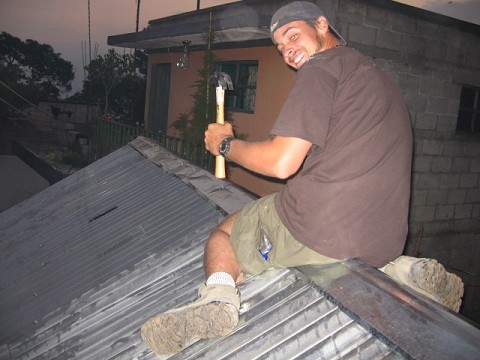Limits of a U.S.-based mission trip

Part 4 of a series on the subject of dependency in
STMs.
 Many youth groups for whom a
Many youth groups for whom a
short-term mission trip (STM) has become a faddish part of their calendar are
stuck in a U.S.-based project rut. These
projects are good for a stunted faith and can provoke helpful thoughts like, “Gee, maybe I shouldn’t be so selfish,” but they do little to expand a world
view or stimulate a passion for the Great Commission.
On many U.S. projects, whether in rural Appalachia or in the inner city, the host partners are
overwhelmed by the dysfunctional community around them. They probably don’t have a triumphant vision of
the future, rather they are caught up in a discouraging cycle of care-giving
and triage. The people they minister to
are either very young, very old, addicted, or in some way caught up in a cycle
of victimization. In these cases,
dependency is a given and the STM participants will likely be limited in what
they experience.
To really break STM participant
hearts, or to give them a vision for the Great Commission, or to confront the
pathologies attending their cultural paradigm, you need to get them out of the
country for a longer period of time. A
week in West Virginia
may begin the process of waking up your participants to the Kingdom, but in my
experience, it will not transform them into world changers.
Much better to take them
beyond the U.S.
borders for at least six weeks if you are serious about changing their
narcissistic perspective. The STM
paradigm needs to change from the lowest common denominator project of “one
week eye-openers,” to a longer term discipling experience. Unfortunately, most youth pastors are too
risk-averse and tactical in their discipling vision to do this.
If you are a youth minister
caught in a U.S.-based STM rut, consider really challenging your group next
year with something much longer and overseas.
It may seem wildly risky, but it will be the best discipleship you ever
do. If you’re interested, email me and I’ll
put you in touch with churches who have pioneered this model and made it a
mainstay of their discipling ministry. Or
if you’re serious, I believe so much in what I propose here, I’ll even help you
myself.

Ouch… but good…
Three questions:
1. How could a Christian Camp do this?
2. How does a family with young children do this as a family? Are there organizations that do this?
3. Does this need to start before “youth ministry.” By then their habits are established…do chruches need to have mission trips for their children’s ministries! And raise up kids with this mind set instead of trying to change the mindset?
Wow. Bring it.
Can we have a discussion that gets beyond the lingo of what we’ve dubbed the “Great Comission” and really seeks to clarify what Jesus may have meant when he instructed his followers(according to Zondervan)to “go and make disciples of all nations (etc.)” or (according to Peterson) to “go out and train everyone you meet, far and near, in this way of life (etc.)”?
I feel like we (Western Christianity) tend to quickly confine His words to evangelism, and then we tend to confine evangelism to the one-time act of presenting the Gospel in some form to people who have (in our estimation) not heard it before.
I believe this type of evangelism is at least a component of the GC, but I think there is a lot more to Jesus’ words than that alone. To me, breaking STM participant’s hearts and/or giving them a vision for the Great Commission involves exposing them, equipping them and motivating them to embrace ministry, discipleship and evangelism as lifestyle choices (or values, really.) In this way, the STM can serve as a sort of doorway (reference earlier comments about measuring missional impact.)
No doubt, however… we must remain vigilant about assessing the way we conduct these experiences. We may never “get it right,” but the day we stop trying is the day we cease pursuing growing ourselves or others in Christ’s image
Chris,
I couldn’t be more on board with what you suggest. Make disciples. Period. I don’t know what this “pray a prayer and leave” deal is, but it isn’t the Great Commission.